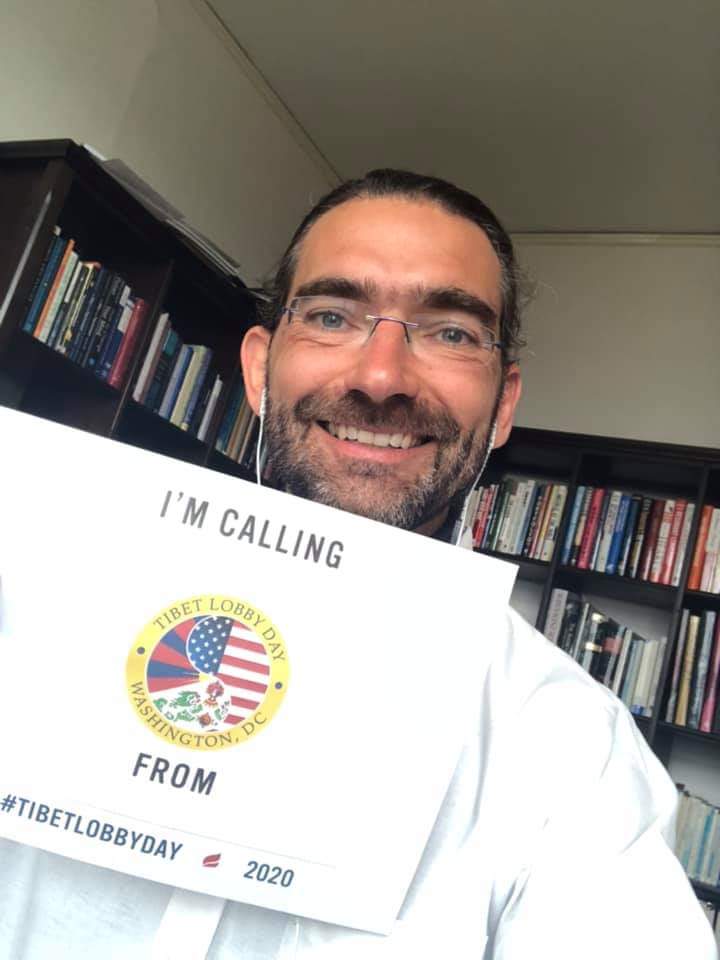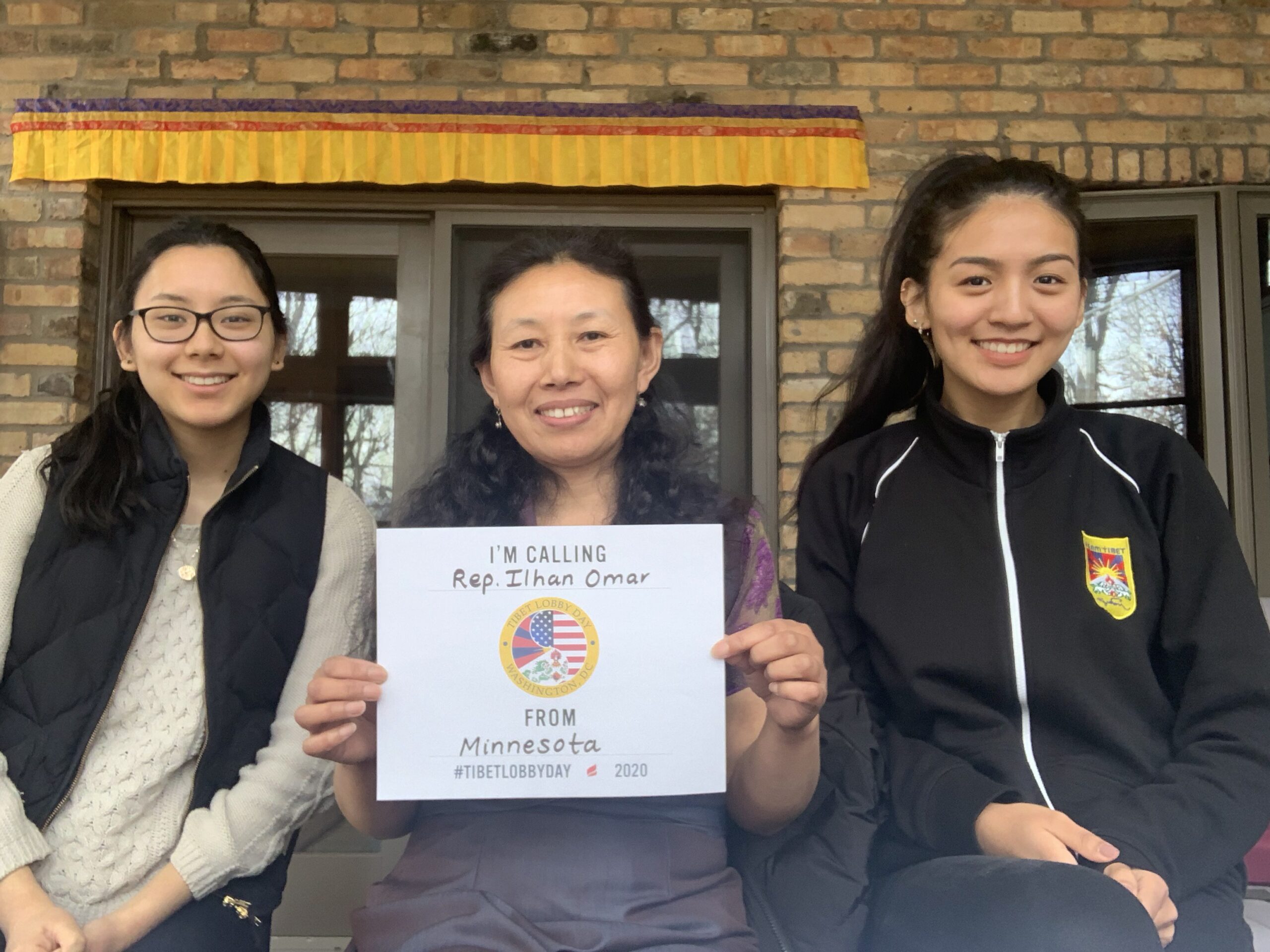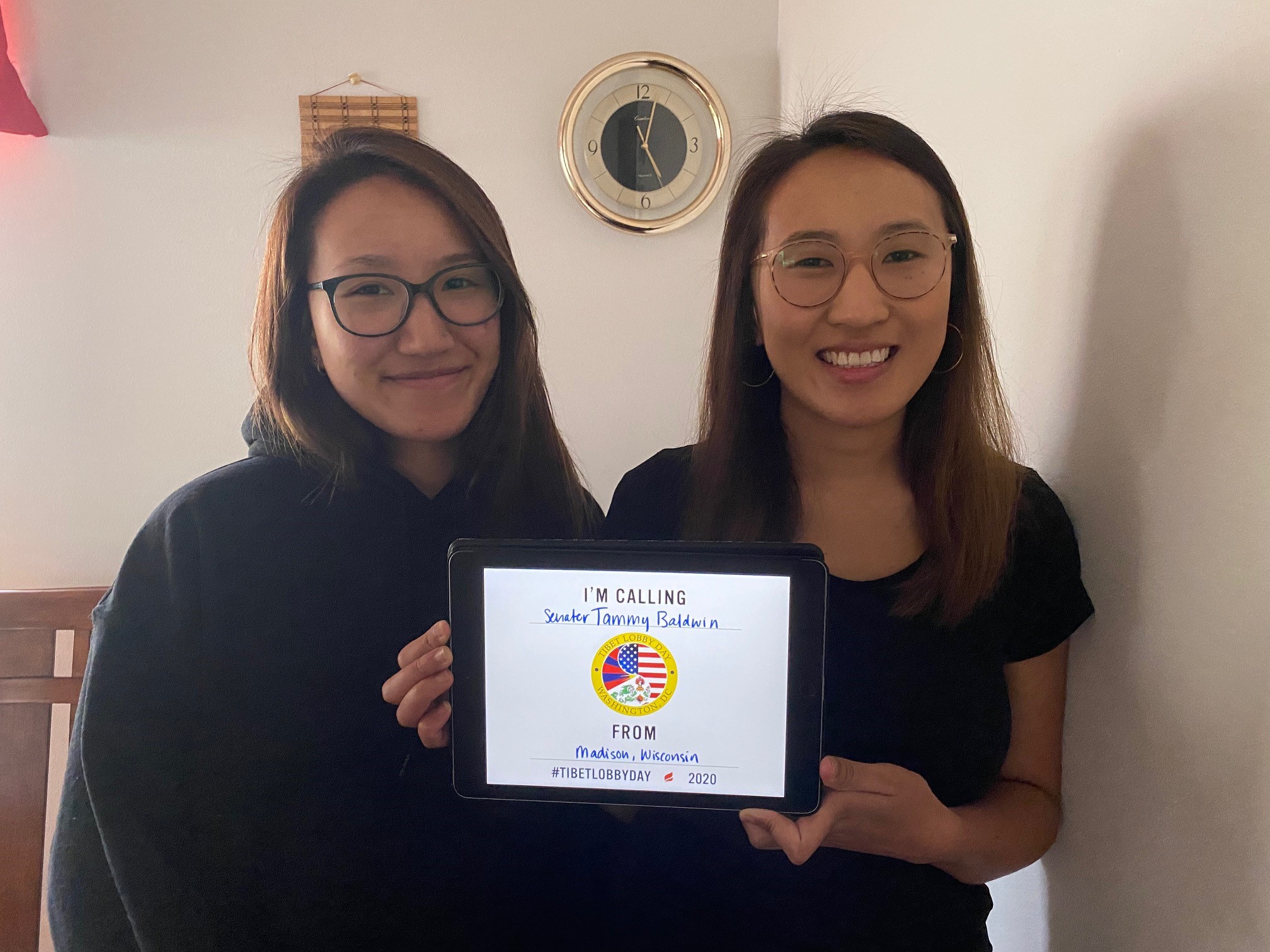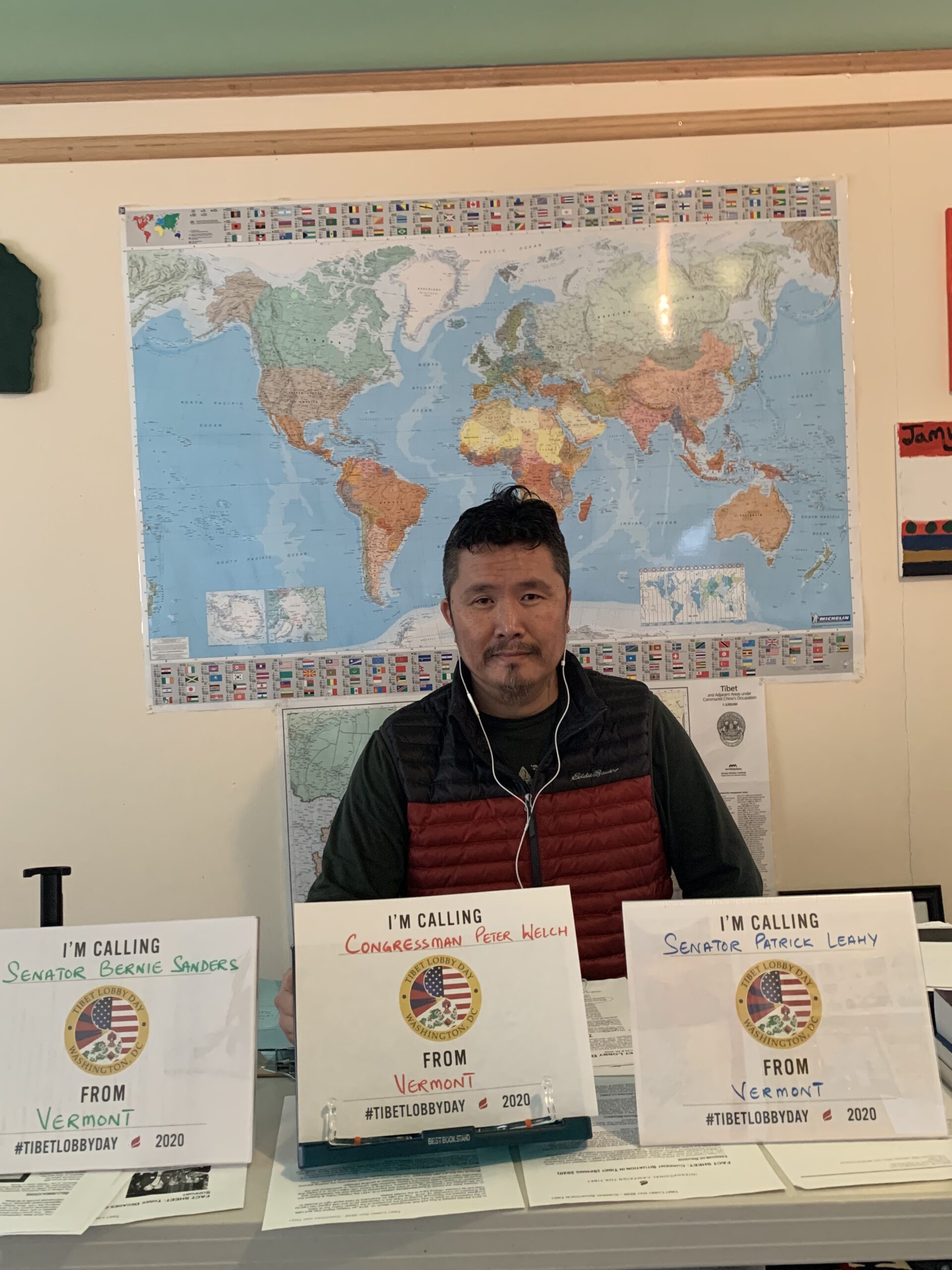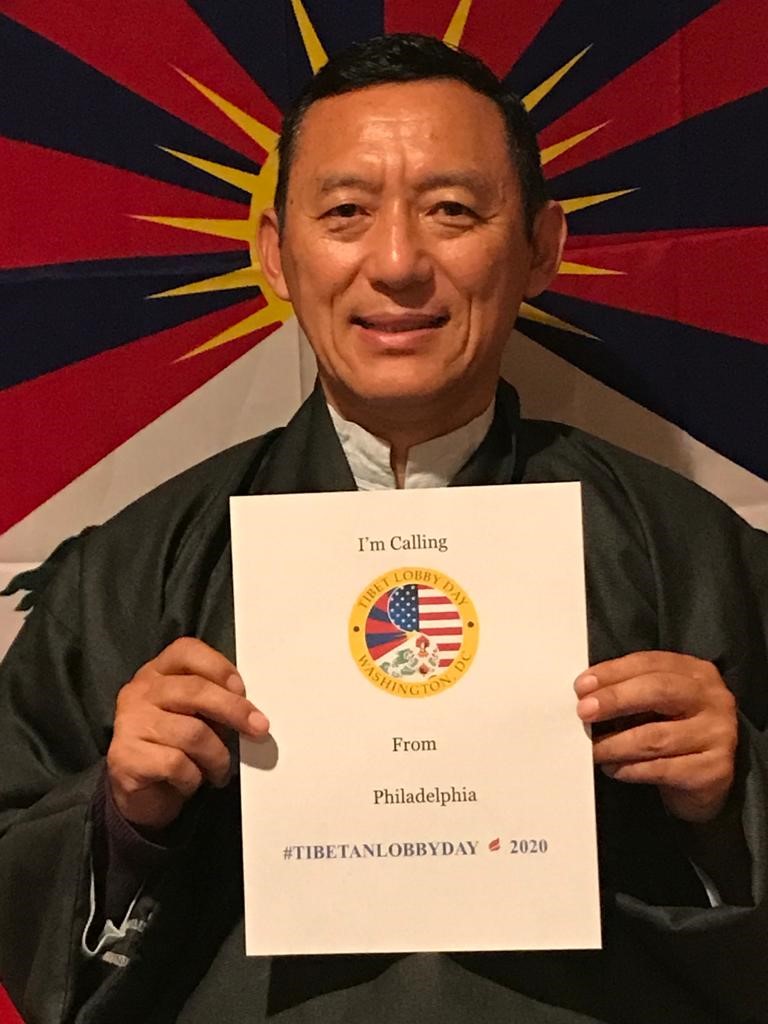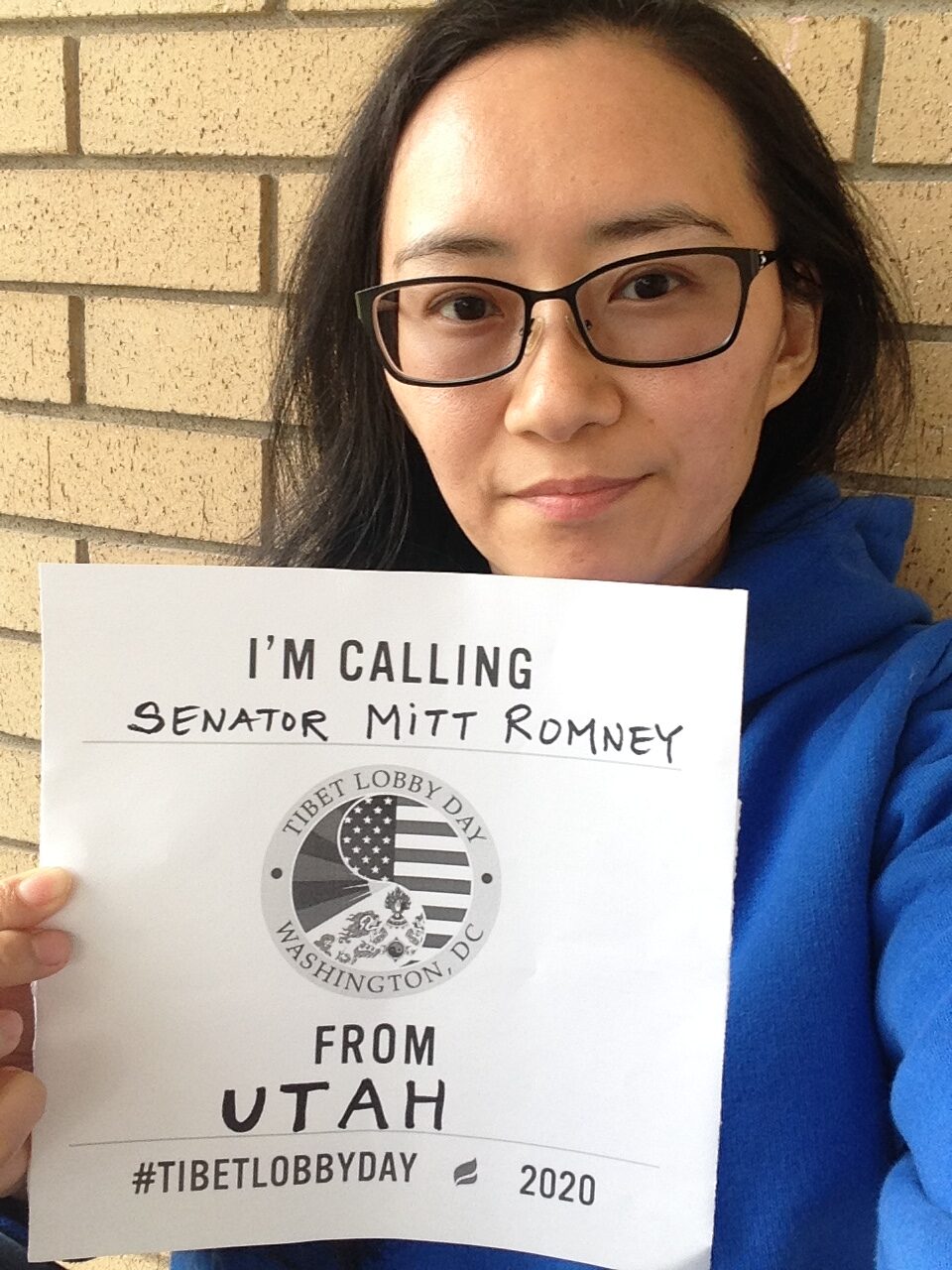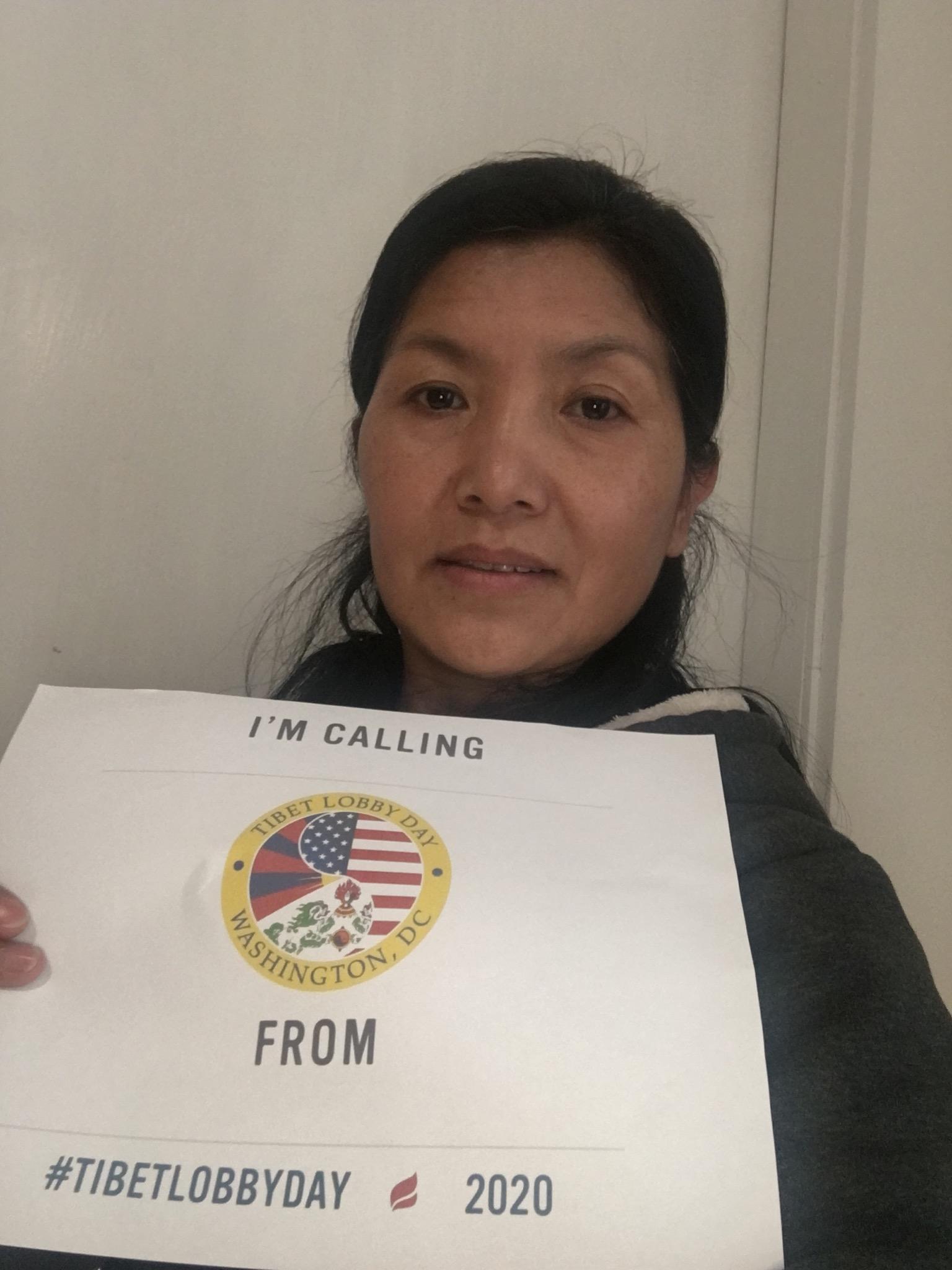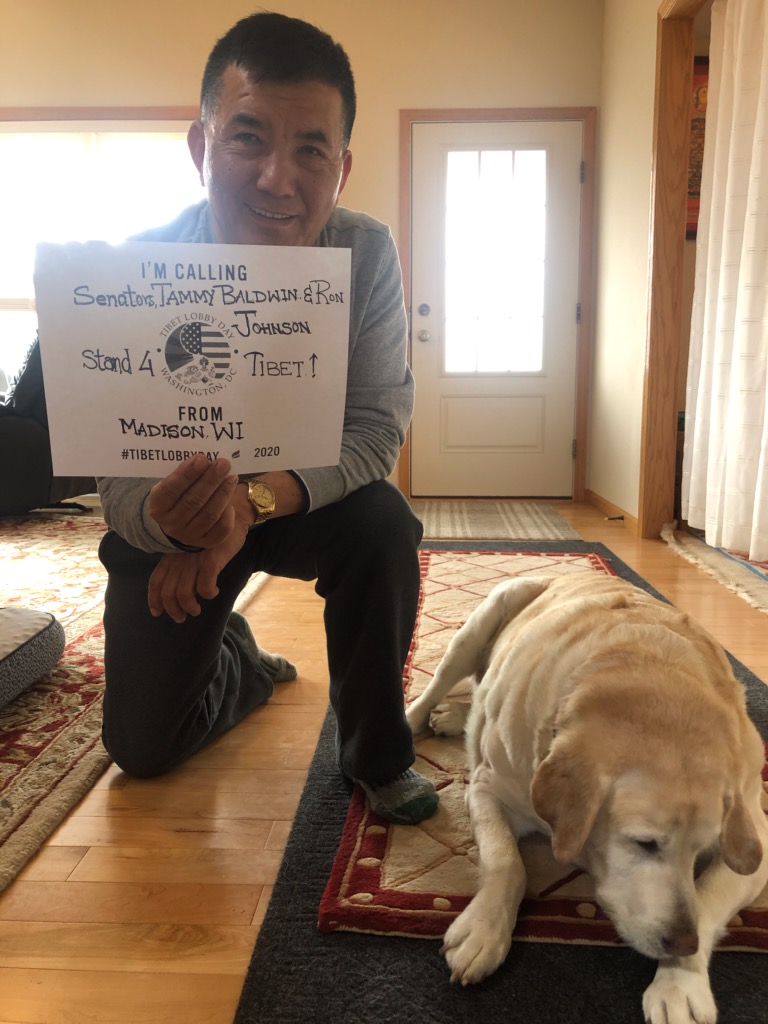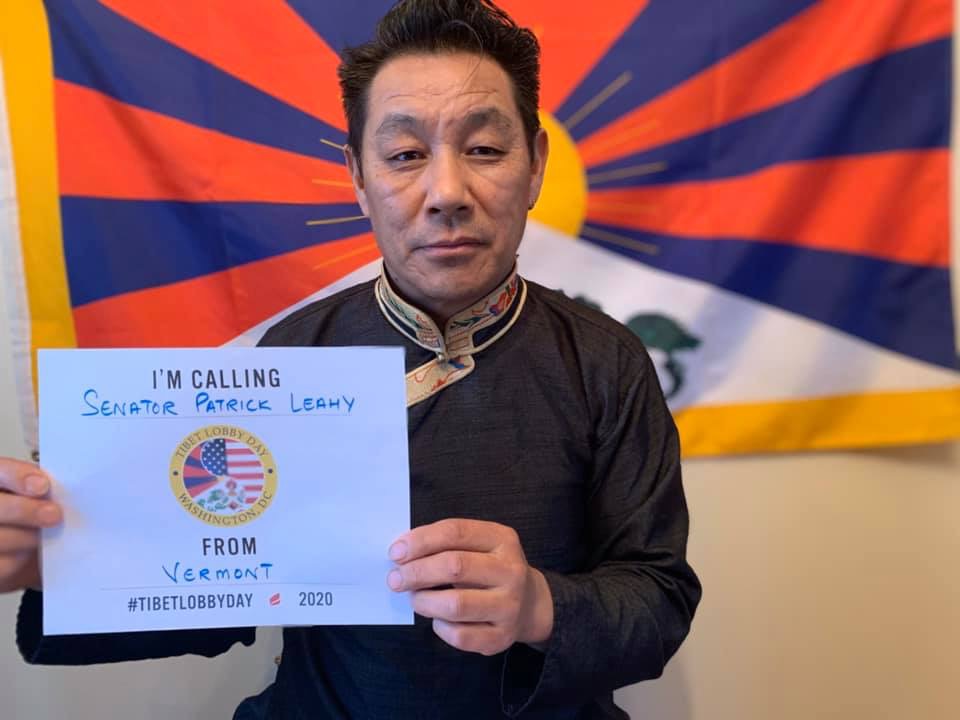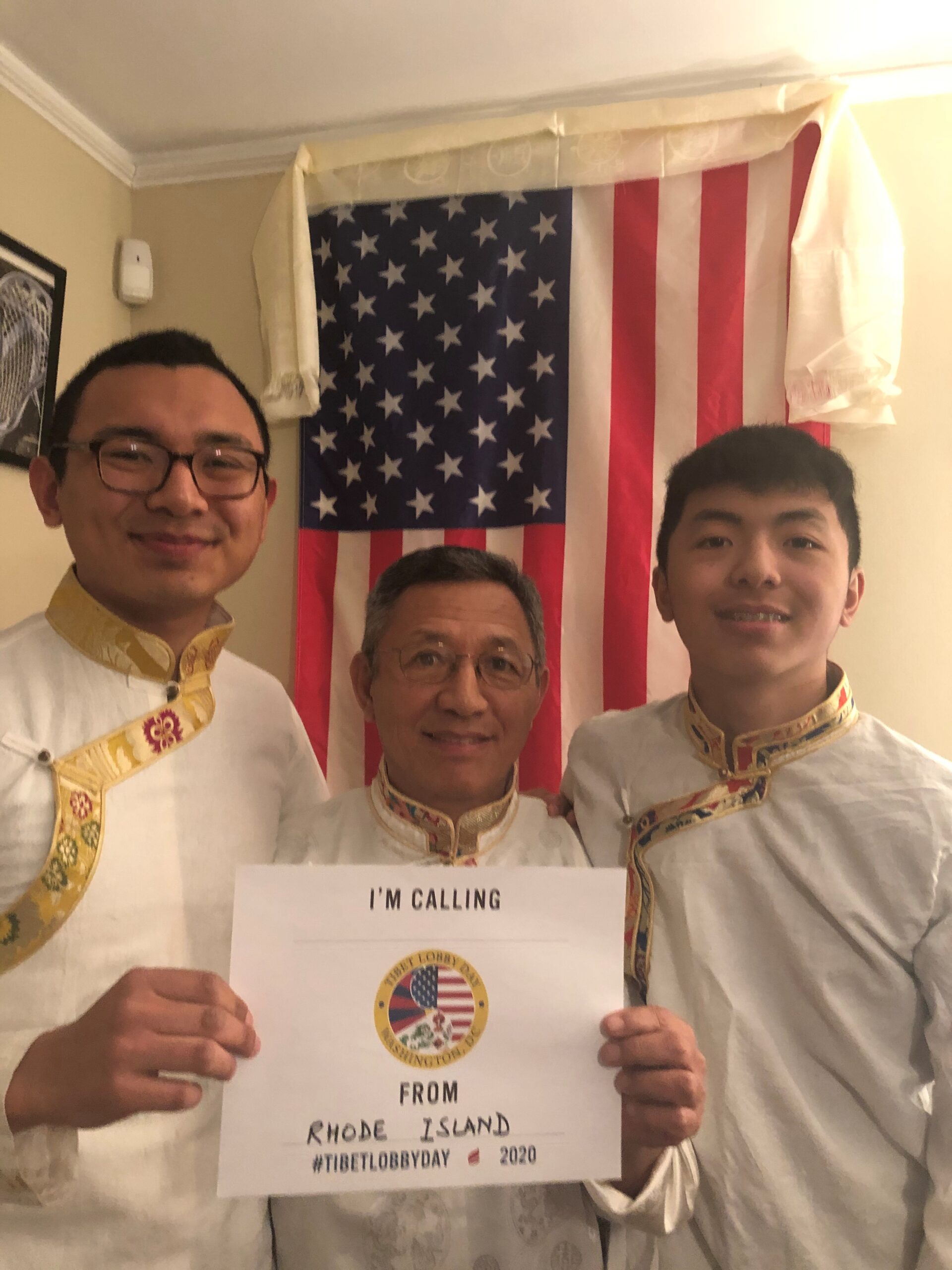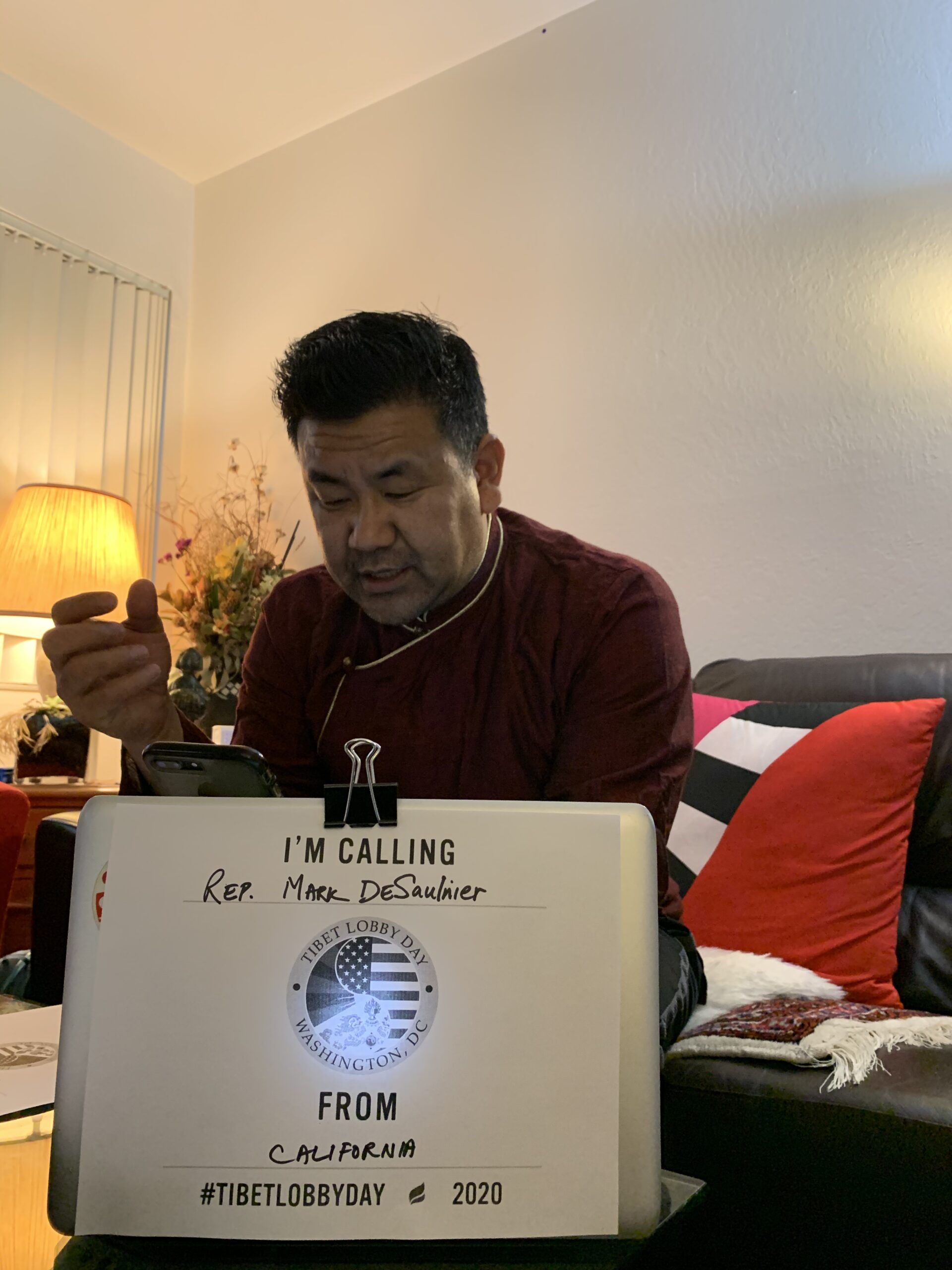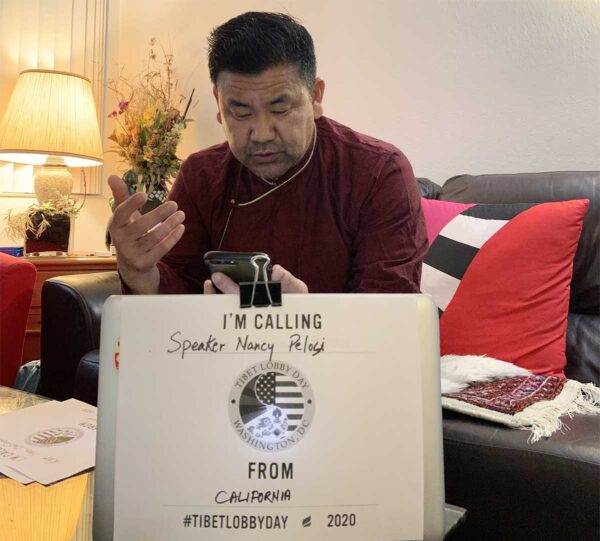
Tsering Choedup of the Tibetan Association of Northern California was on the line with the office of House Speaker Nancy Pelosi, D-Calif., during Tibet Lobby Day.
With the country facing a historic crisis and Capitol Hill closed to the public, Tibet Lobby Day had to be different this year, but it still succeeded at building support for the Tibetan people in Congress.
More than 150 people took part in the Lobby Day on March 23 and 24, reaching out to more than 80 Congressional offices by telephone to speak with members of Congress and their staff.
Their discussions focused on passing legislation to help Tibetans, calling for human rights and basic freedoms in Tibet and maintaining US Tibet-related programs.
Tibet has been occupied by China for more than 60 years, and is now one of the least free places on Earth: The Tibetan people lack the ability to freely practice their religion, take part in their cultural traditions or protest peacefully against the Chinese government.
Virtual Lobby Day
This was the 12th Tibet Lobby Day, but it was unlike any of the ones that came before.
Normally, the International Campaign for Tibet, which coordinates the event, brings participants—including members of Tibetan American associations, Tibet support groups, and other supporters of Tibet—to Washington, DC to lobby Congress in person.
This year, however, the public cannot access Congressional offices in the nation’s capital until at least the start of April due to the coronavirus outbreak.
As a result, Tibet Lobby Day became a virtual event this year. Rather than travel to Capitol Hill, participants called their senators’ and representatives’ offices from the safety of their own homes. The Tibetan Associations responded positively and as a result we had a good turnout despite all the challenges.
Calling coast to coast
This arrangement not only allowed participants to comply with official guidelines on preventing the spread of coronavirus; it also gave them the chance to share images of themselves on social media calling their legislators from their own districts and states.
To help with their photos, ICT posted a sign on the Tibet Lobby Day website that participants could print out, fill in and share online.
The result was a stream of photos from all across the country:
#NewYork, represent! The Tibetan Community of New York & New Jersey called their legislators for #TibetLobbyDay today! pic.twitter.com/fFB58icmmb
— International Campaign for Tibet (@SaveTibetOrg) March 23, 2020
And here’s another #TibetLobbyDay call from #DC! Thank you to all these callers!! pic.twitter.com/SxPYNqdIxp
— International Campaign for Tibet (@SaveTibetOrg) March 25, 2020
Quotes from participants
The Lobby Day participants also gave their feedback to ICT about the event.
Tenzin Tsultrim, Rhode Island:
“We just had two great phone calls with the staffers from Rep. Jim Langevin and Sen. Jack Reed’s offices. The senator himself even made a surprise appearance on our conference call with his office.”
Sonam Rikha, Chicago, Ill.:
“I was really nervous even though I wasn’t talking with the senator directly but one of their staffers. I was surprised to see how supportive and interested the staffers were about the bill and the situation in Tibet.”
Samten Khangkyi, New Brighton, Minn.:
“If we not raise our concerns and issues that is very important for us, our elected officials have many other issues to deal and ours will be left aside. So, it is our job to let them know support for Tibet and Tibetan issues are very important to us. One of the things [a congressional staffer] said during our meeting was, ‘keep us in loop.’ What I heard here was, it is our job bring our issues to their attention and knock their door.”
Gelek Namgyal, St. Louis Park, Minn.:
“As a Tibetan, I personally believe that each one of us has the responsibility to keep our movement going, raise our voice to the world, [e]specially we must make special efforts alongside making sure to be able to reach the voices of our brothers and sisters in Tibet when they are in such difficult time. It was another great opportunity with tremendous experience to talk about Tibet.”
Tenzin Tseyang, Woodside, N.Y.:
“This is my first time lobbying, but have been observing ICT’s work for long time. I applaud how ICT builds and maintains relationship with representatives in Congress and state. Thank you for giving us opportunity to speak to the Congress representative and advocate for Tibet. It was also about updating my information and knowledge about current situation inside Tibet. Appreciate you[r] efforts in bringing young Tibetans to lead and lobby for Tibet.”
Encouragement from Congress
Lobby Day participants also received words of support from Rep. James McGovern, D-Mass., and Sen. Marco Rubio, R-Fla, who shared their encouragement in video messages.
The videos were filmed before it was announced that Lobby Day would be virtual this year.
Three requests
During their Lobby Day calls, the participants focused on three main requests for members of Congress.
- Pass the Tibetan Policy and Support Act
This far-reaching bipartisan bill will dramatically upgrade US support for the Tibetan people. It will make it official US policy that only the Dalai Lama and Tibetan Buddhist community can decide his succession plans and will sanction any Chinese officials who try to appoint their own Dalai Lama in the future. The bill will also prevent China from opening a new consulate in the US until it allows a US consulate in Tibet’s capital of Lhasa; address water security and climate change in Tibet; and praise Tibetans for embracing democracy in exile.The House of Representatives overwhelmingly passed the bill in January. Now the Senate needs to pass the bill and send it to the president’s desk to be signed into law.
Ask your senators to pass the Tibetan Policy and Support Act!
- Raise the issue of Tibetans’ human rights and religious freedom whenever US policy on China is discussed in Congress (especially when they meet with Chinese government officials); and call on Chinese authorities, including the Chinese Embassy in Washington, DC to release Tibetan political prisoners.
Learn more about human rights, religious freedom and political prisoners in Tibet.
- Continue funding Tibet-related programs in the State Department and the Foreign Operations Appropriations Bill in 2021 at the same level as 2020. These programs provide vital humanitarian and economic development assistance for Tibetans in Tibet and in exile, but they make up only a small fraction of the US budget.
ICT quote
Matteo Mecacci, ICT president:
“Obviously the entire world is confronting a devastating pandemic, and our leaders in the United States have urgent decisions to make. I know many of our supporters regret not being able to come to Washington, DC this year to lobby their senators and representatives in person to push back against China’s oppressive policies in Tibet. At the same time, people still wanted the opportunity to speak with Congressional offices about the need to pass vital Tibet-related legislation this year and continue supporting the rights and development of the Tibetan people.
The International Campaign for Tibet is so grateful to the Tibetan associations, Tibetan Americans and Tibet supporters who made this virtual Lobby Day possible, as well as to the Congressional staff who engaged with their constituents during this difficult and challenging time. While the circumstances were not ideal of course, we are very pleased that progress could be made on sustaining and increasing US support for Tibetans and their rightful aspirations.”
 A portion of this program was funded by a generous grant from the Nando and Elsa Peretti Foundation
A portion of this program was funded by a generous grant from the Nando and Elsa Peretti Foundation


